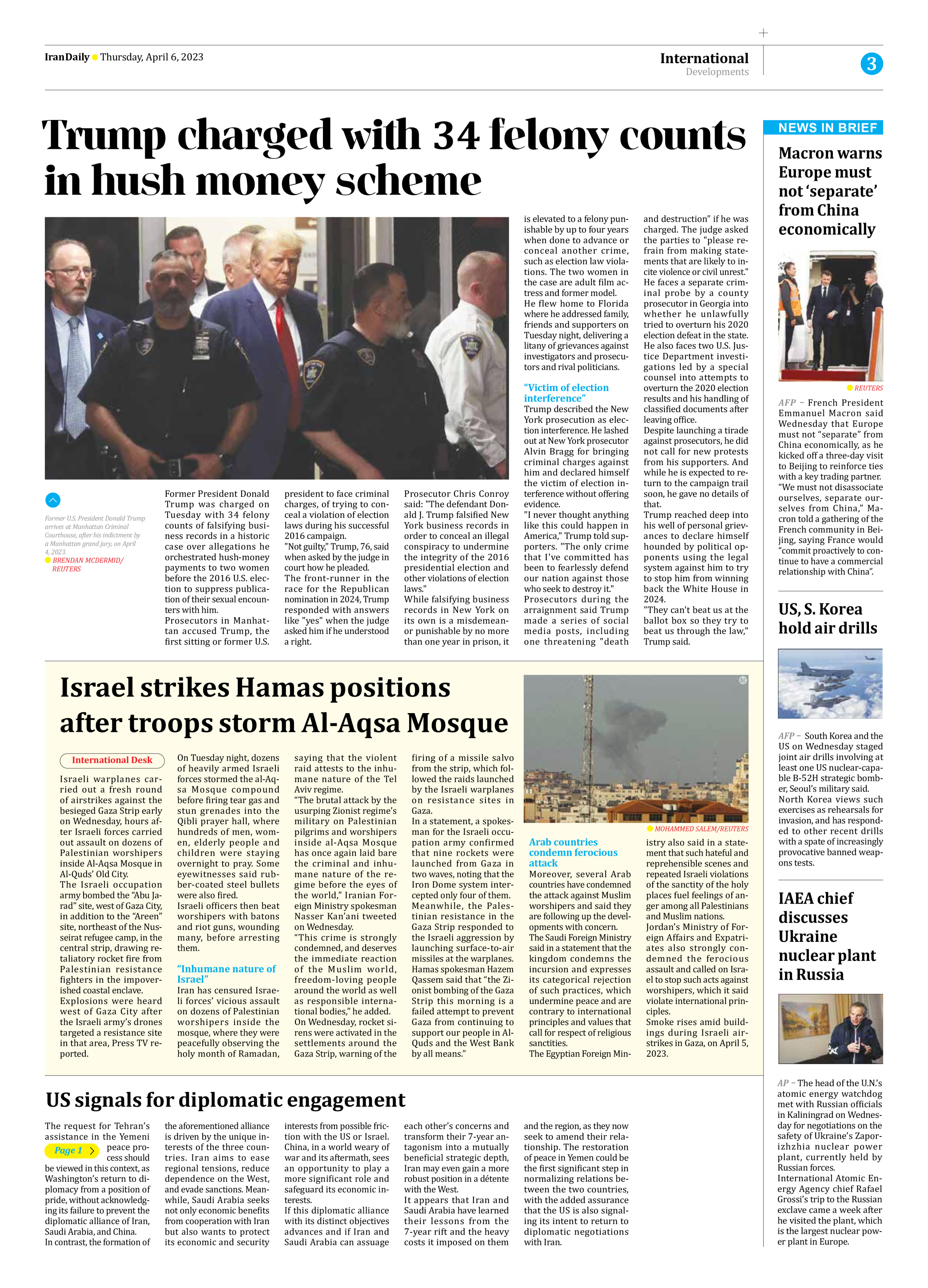
US signals for diplomatic engagement
Page 1
The request for Tehran’s assistance in the Yemeni peace process should be viewed in this context, as Washington’s return to diplomacy from a position of pride, without acknowledging its failure to prevent the diplomatic alliance of Iran, Saudi Arabia, and China.
In contrast, the formation of the aforementioned alliance is driven by the unique interests of the three countries. Iran aims to ease regional tensions, reduce dependence on the West, and evade sanctions. Meanwhile, Saudi Arabia seeks not only economic benefits from cooperation with Iran but also wants to protect its economic and security interests from possible friction with the US or Israel. China, in a world weary of war and its aftermath, sees an opportunity to play a more significant role and safeguard its economic interests.
If this diplomatic alliance with its distinct objectives advances and if Iran and Saudi Arabia can assuage each other’s concerns and transform their 7-year antagonism into a mutually beneficial strategic depth, Iran may even gain a more robust position in a détente with the West.
It appears that Iran and Saudi Arabia have learned their lessons from the 7-year rift and the heavy costs it imposed on them and the region, as they now seek to amend their relationship. The restoration of peace in Yemen could be the first significant step in normalizing relations between the two countries, with the added assurance that the US is also signaling its intent to return to diplomatic negotiations with Iran.







